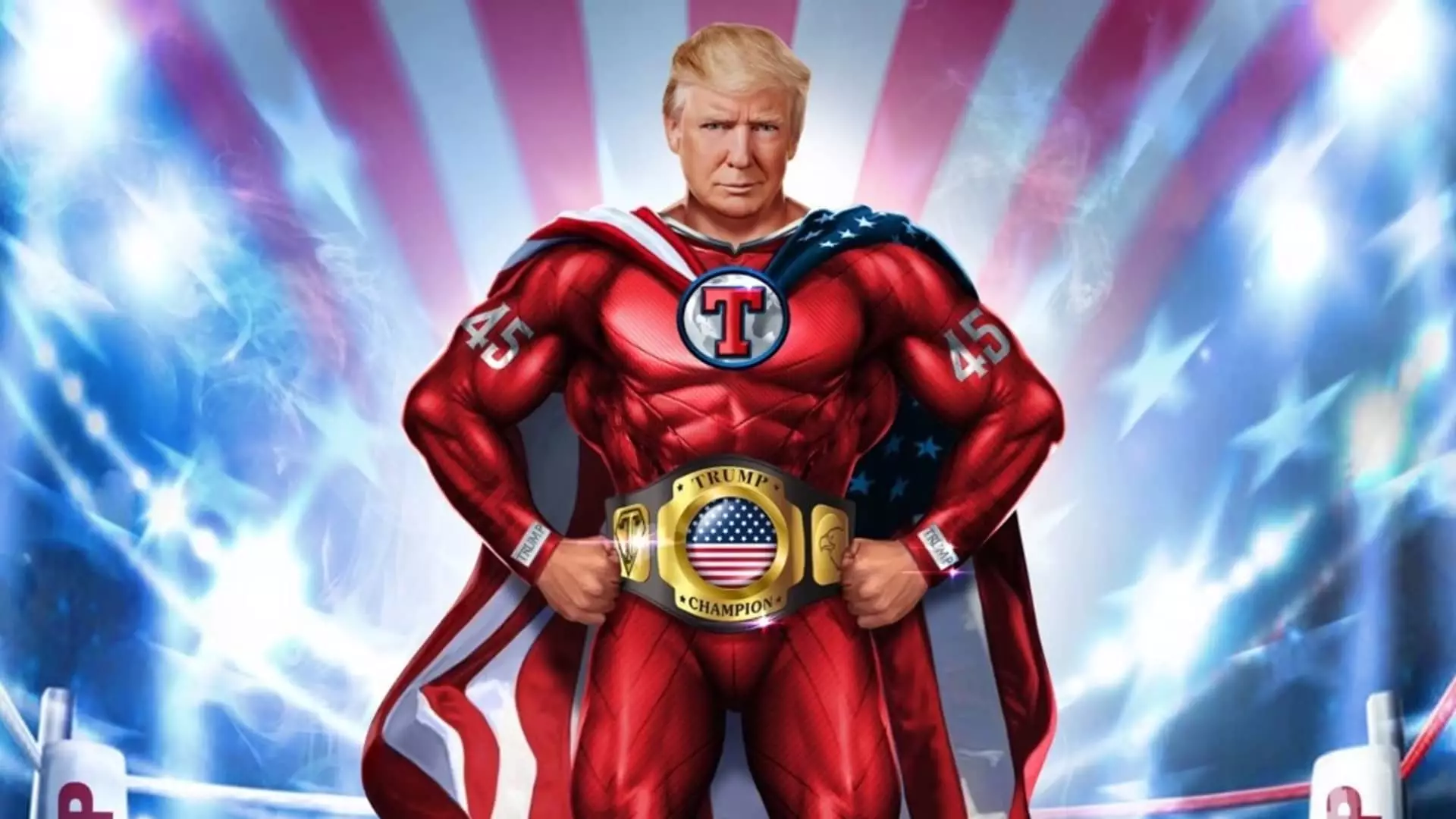Donald Trump, former President of the United States and an ongoing player in the political arena, is stepping into the cryptocurrency space with the launch of his project, World Liberty Financial (WLF). With recent activity in his social media business gaining traction and the impending presidential election just weeks away, Trump appears eager to diversify his financial ventures. This article delves into the implications of his latest endeavor, focusing on the nature of the project, regulatory challenges, and its potential impact on the cryptocurrency landscape.
Understanding World Liberty Financial
The premise of WLF is to serve as a crypto bank, providing avenues for users to lend, borrow, and invest in various cryptocurrencies. While the concept sounds appealing, details remain sparingly sparse. Notably absent is an official white paper or comprehensive business plan, which leaves potential investors and interested parties in a fog regarding the operational structure and foundational principles of WLF. Trump’s promotion of WLFI (the accompanying token), particularly through his X (formerly Twitter) account, raises eyebrows—claiming, quite ambitiously, that investing in WLFI offers a real opportunity to “shape the future of finance.”
To date, the project seeks to generate $300 million during its initial sale, aiming for a whopping $1.5 billion valuation. Yet, the announcement lacks any substantial elements that would typically accompany a major financial product launch, leading to speculation over the viability and intention behind this venture.
Unlike traditional equity offerings, WLFI is operating under a Regulation D token offering, which allows for capital raising without extensive registration with the Securities and Exchange Commission (SEC). This regulatory framework permits sales to a limited set of accredited investors—those with a net worth exceeding $1 million. Although this approach could simplify fundraising, it presents considerable barriers for everyday investors and raises ethical questions regarding the accessibility of emerging financial platforms.
Moreover, Trump’s involvement is intriguing. Holding a significant share of his previous company, Trump Media & Technology Group, with a present trading history marked by volatility, it is unclear how much of a stake he will maintain in WLF. Such opacity can create mistrust, especially considering that the founding team—comprised of figures like Zachary Folkman—stands to benefit significantly from the token distribution.
The launch of WLF is not without skepticism. Critics have already expressed concerns regarding the connection between Aave, a well-respected decentralized finance platform, and the Trump-associated project. Bloggers and crypto enthusiasts raised alarms about the motivations of those involved, particularly Folkman, whose previous ventures involved significant risks, including a hack that led to substantial financial loss. Furthermore, there are lingering apprehensions regarding the level of governmental oversight and regulation in cryptocurrency projects, especially those tied to high-profile individuals.
Public sentiment remains divided on cryptocurrency and its alignment with more traditional financial systems. Given Trump’s historical controversies, many may associate World Liberty Financial with a questionable ethical framework. Indeed, the impression that a significant segment of the community is wary of his potential oversight cannot be undervalued.
Future Prospects and Community Engagement
Amidst the uncertainty surrounding WLF, there are efforts to solidify community engagement. The project has initiated a “whitelisting” process for early participants, touting interest from over 100,000 individuals—impressive numbers that highlight an existing appetite for cryptocurrency participation. Nevertheless, as with any emerging venture, the need for transparency is paramount.
During a recent conversation on the X platform, Folkman attempted to clarify that token ownership does not equate to equity and described WLFI as a governance token, promoting its role in shaping the future of the protocol. However, the lack of concrete information regarding ownership benefits, coupled with undefined financial arrangements for the founding team, keeps many in the dark.
As World Liberty Financial prepares to enter the cryptocurrency market, the road ahead is fraught with challenges and opportunities alike. The upcoming token sale will yield feedback on its standing within the broader crypto community, and approval from platforms like Aave is pivotal for the project’s sustainability.
However, investors must approach with caution. While the allure of a governance token linked to a high-profile individual like Trump may be appealing, the realities of investment in a largely unregulated and opaque domain can lead to significant risks. As WLF navigates these complexities, the real measure of its success will rest on its transparency, regulatory compliance, and the ongoing dialogue with its potential user base.
While Donald Trump’s World Liberty Financial represents an intriguing foray into the world of cryptocurrency, it necessitates careful scrutiny and a commitment to operational clarity if it hopes to gain credibility and foster trust among its early adopters and the broader financial community.

